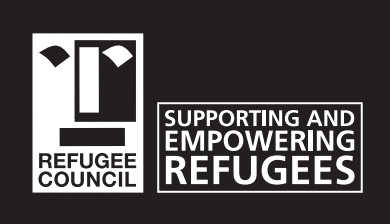Asylum backlog of 118,329 people as of 31 March 2024 is just one of the problems the new government will inherit
With the general election now just days away, the Refugee Council published a short briefing paper on Friday that sets out the "cost, chaos and human misery" that the next government will inherit and will need to address to fix the asylum system.
 You can download the 12-page briefing paper here.
You can download the 12-page briefing paper here.
"The Home Secretary in the new government will have responsibility for fixing an asylum system that faces a myriad of challenges caused by unworkable legislation that has only served to make the process more complex and unwieldy. The immediate focus for the next government must be on getting to grips with the asylum decision making system to tackle the backlog in initial decisions," the Refugee Council said.
As the briefing paper explains, despite work undertaken by the Conservative government last year to clear the legacy asylum backlog, as of 31 March 2024 there was a current backlog of 118,329 people waiting for an initial decision on their asylum application. Two-thirds of those have been in the system for at least six months and a quarter of applicants have waited for over a year.
The Illegal Migration Act 2023 (IMA) has slowed down decision-making on asylum claims, and the Refugee Council warns that if the IMA were fully enacted, it would lead to the asylum system being effectively shut down and would leave over 115,000 asylum seekers stranded in permanent limbo. Under the IMA, their asylum claims are deemed inadmissible and are not processed.
More figures in the Refugee Council's briefing paper show the widespread scale of the challenges awaiting the next government across the whole asylum system.
At the end of March, 35,686 asylum seekers were being accommodated in hotels, 59,040 people were in asylum dispersal accommodation, and 2,548 in contingency accommodation.
Homelessness among refugees has increased significantly as result of the Conservative government clearing the legacy backlog and the Home Office making more positive decisions. Between 2022 and 2023, there was a 604% increase in the number of households requiring homelessness support from local authorities after being evicted from Home Office asylum accommodation.
The number of asylum seekers crossing the Channel in small boats has been higher than ever so far in 2024 and is likely to increase in the months after the election.
Overall levels of returns and removals of migrants, which includes failed asylum seekers and all immigration-related removals, remain below 2017 levels.
In addition, there is a large and growing backlog of appeals in the Immigration Tribunal against decisions to refuse asylum claims. The number of appeals received by the First-tier Tribunal between October 2023 and March 2024 increased by nearly 400% compared to the corresponding period a year earlier.
The Refugee Council's Enver Solomon warned that a "meltdown" is rapidly unfolding in the "dysfunctional and chaotic" asylum system. He urged the next government to seize the opportunity to rescue and reform the system.
The briefing paper makes a number of recommendations to address the challenges, including:
• Bringing forward legislation to repeal the Illegal Migration Act 2023 and restore the right to asylum.
• Publishing guidance under section 30 of the Illegal Migration Act 2023 to make clear that leave can be granted to people who are found to be refugees if they arrived irregularly after 7 March 2023.
• Utilising the learning from the Streamlined Asylum Process to quickly grant refugee status to people from high grant countries.
• Immediately processing all the asylum applications that had been paused due to the applicants being in the cohort of people targeted for removal to Rwanda.
• Working with local authorities and the voluntary sector so that newly recognised refugees do not face homelessness and destitution in the weeks after being granted status, including by extending the move-on period for newly recognised refugees to 56 days.
• Putting in place a team within the Home Office to review all asylum refusals that have been appealed to ensure the correct decision was made first time. If the claim should have been granted, then that team should have the power to make that decision.
• Recruiting judges to the First-tier Tribunal to increase capacity, and working with the Legal Aid Agency and legal aid providers to ensure appellants are represented.